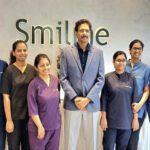India
healthysoch
Geneva, New Delhi, January 22, 2021 :
More than 2,800 scientists from 130 countries gathered on Friday (January 15) in a virtual forum hosted by the World Health Organization (WHO) to identify knowledge gaps and set research priorities for vaccines against SARS-CoV-2, the virus that causes COVID-19.
“The development and approval of several safe and effective vaccines less than a year after this virus was isolated and sequenced is an astounding scientific accomplishment,” said Dr Tedros Adhanom Ghebreyesus, WHO Director-General, in his opening remarks. “The approval of the first few vaccines does not mean the job is done. Far from it. More vaccines are in the pipeline, which must be evaluated to ensure we have enough doses to vaccinate everyone.”
More than 30 million vaccine doses have already been administered in 47 mostly high-income countries. But the global vaccine rollout has exposed glaring inequalities in access to this life-saving tool.
“The spirit of collaboration has to prevail in these challenging times as we seek to understand this virus,” said Dr John Nkengasong, Director of the Africa Centres for Disease Control and Prevention. “We have to be mindful of the inequalities and we must deliberately promote investment in regional capacities to level the playing field and have meaningful collaboration to begin to address some of the challenges.”
Experts agreed the need for critical research on administering vaccines in different target populations, as well as on vaccination delivery strategies and schedules. This includes trials, modelling and observational studies, all of which would help to inform policy.
They discussed the impact of emerging SARS-CoV-2 variants on the efficacy of vaccines, the impact of vaccines on transmission of infection, and the need to develop the next generation of vaccine platforms.
“The world needs multiple vaccines that work in different populations in order to meet global demand and end the COVID-19 outbreak. Ideally, those will be single-dose vaccines that do not require cold chain, could be delivered without a needle and syringe and are amenable to large-scale manufacture,” said Professor Mike Levine, Director of the Center for Vaccine Development at the University of Maryland.
The meeting concluded with agreement to establish a WHO-hosted platform for global sharing and coordination of emerging vaccine research information on efficacy and safety. The forum would enable scientists to share and discuss unpublished and published data and research protocols to further our collective understanding of SARS-CoV-2 vaccines.
“The WHO will regularly convene experts from around the world, promote collaborative research, provide standard protocols and develop a platform for sharing the latest knowledge in the field,” said Dr Soumya Swaminathan, WHO Chief Scientist.
healthysoch







